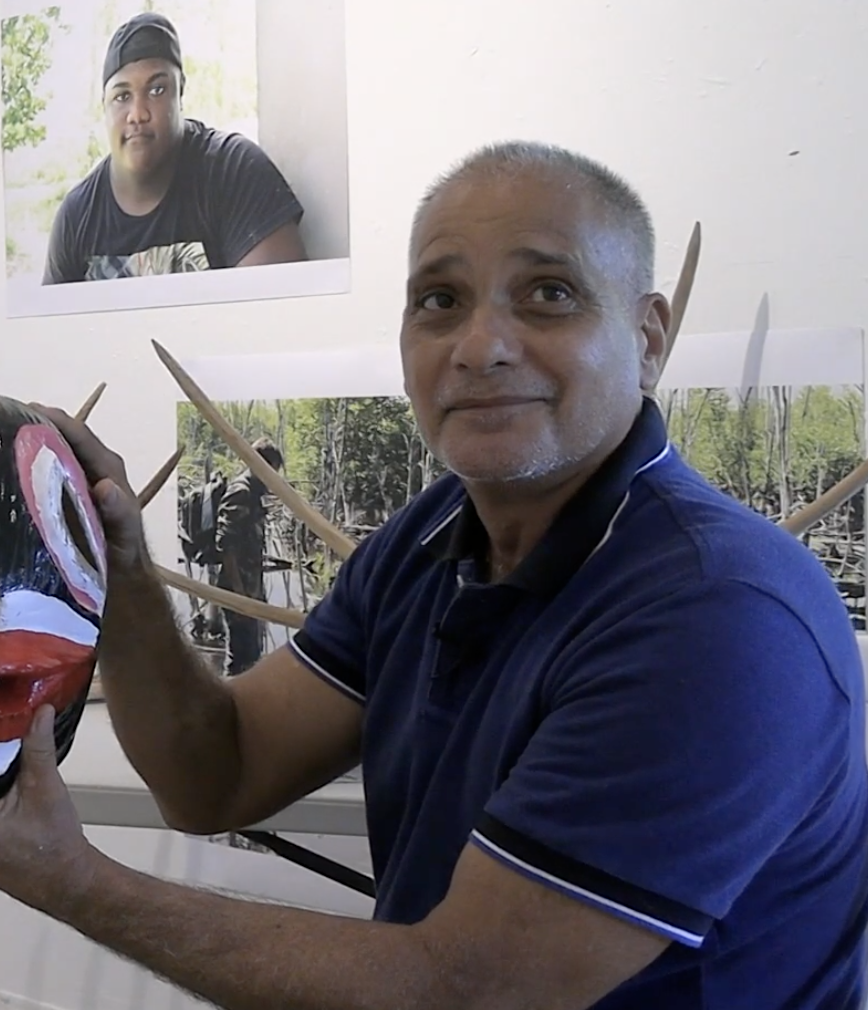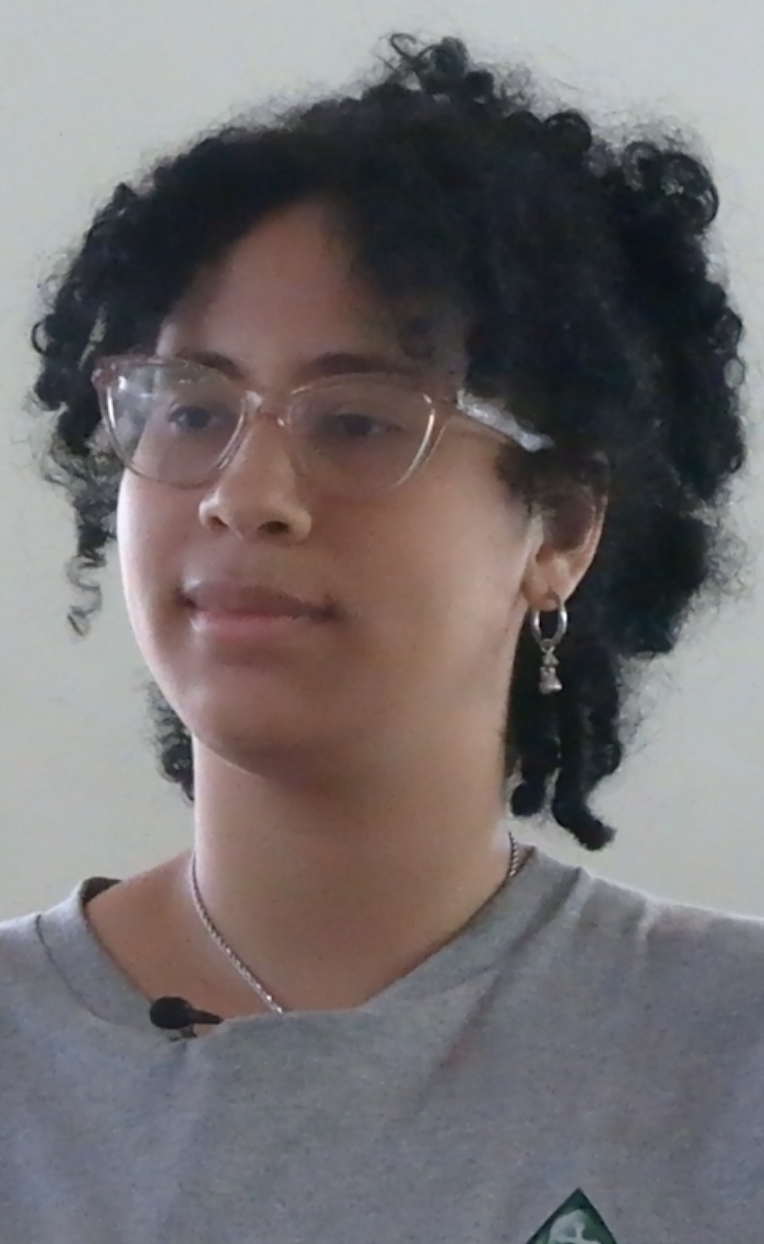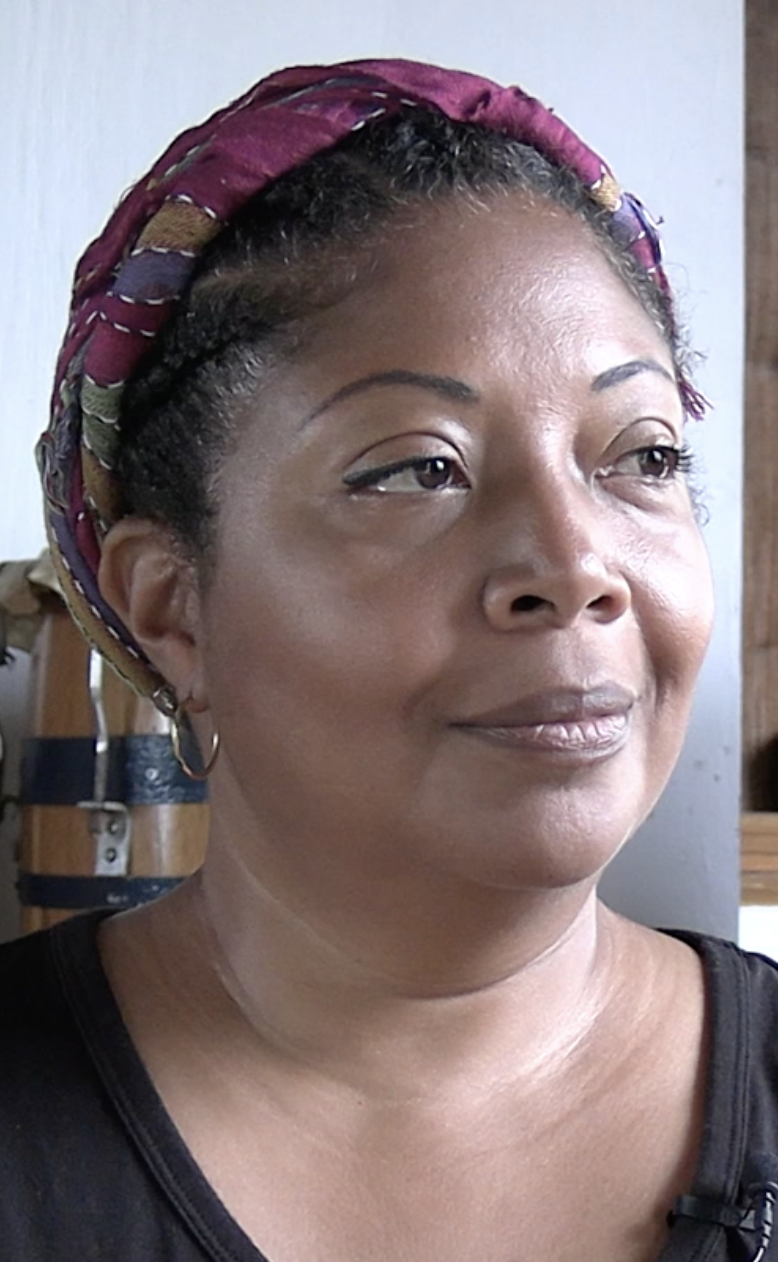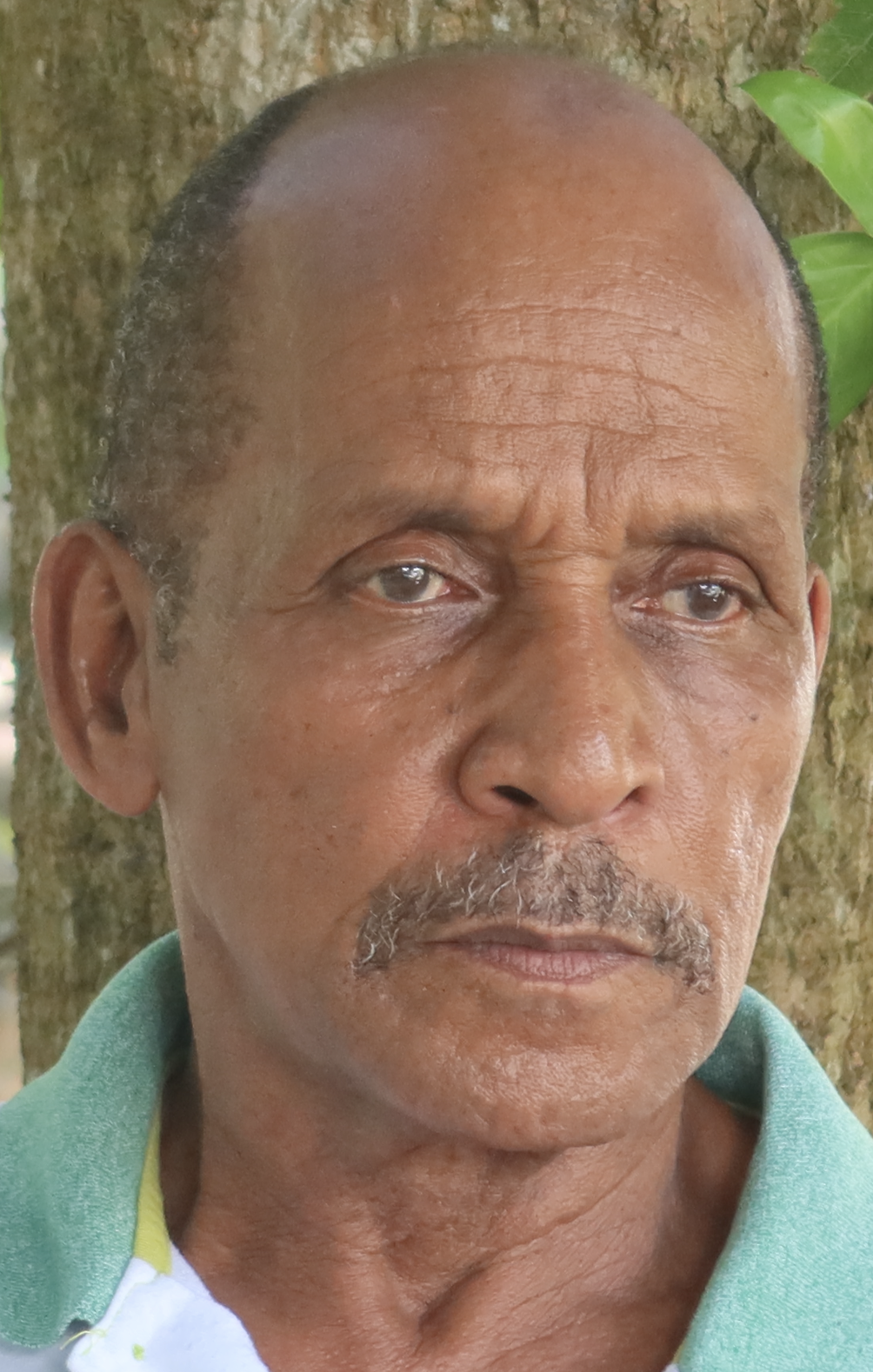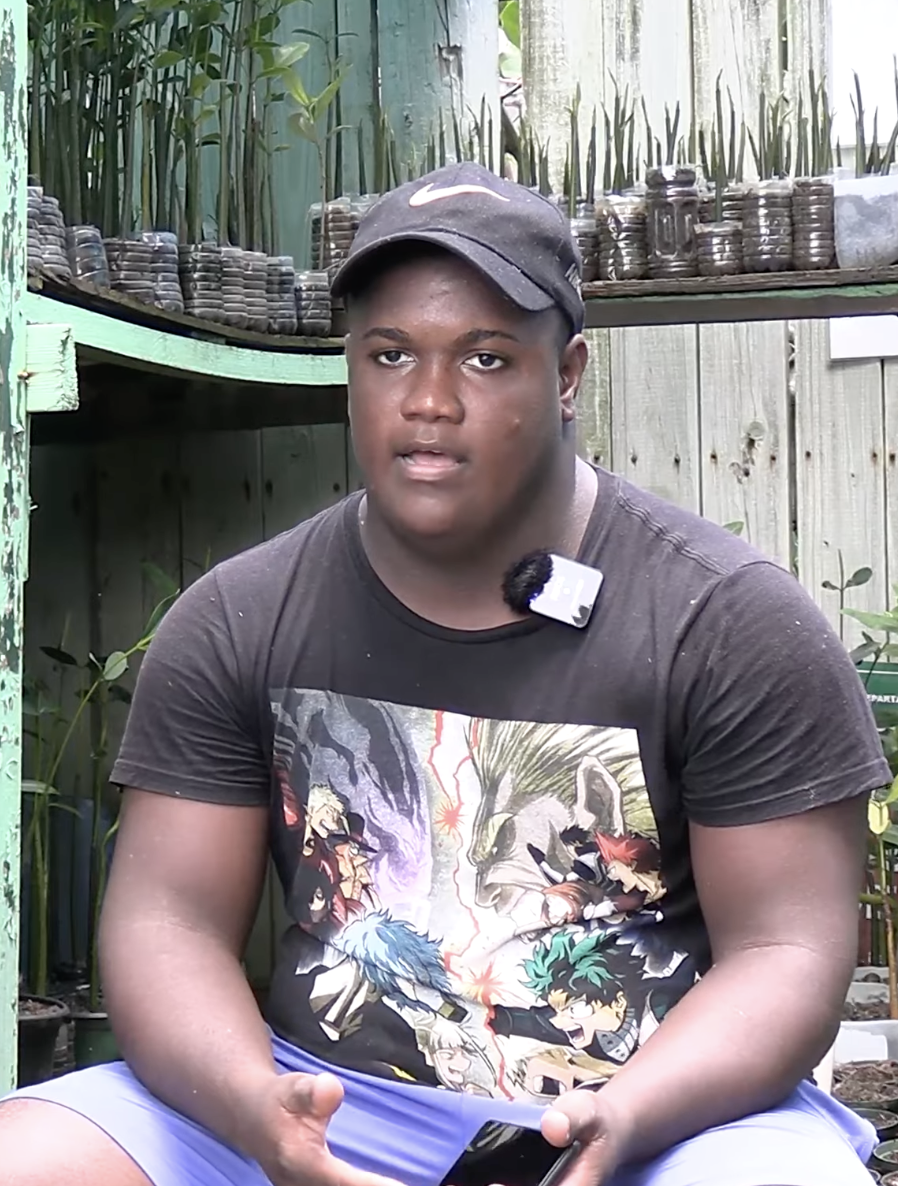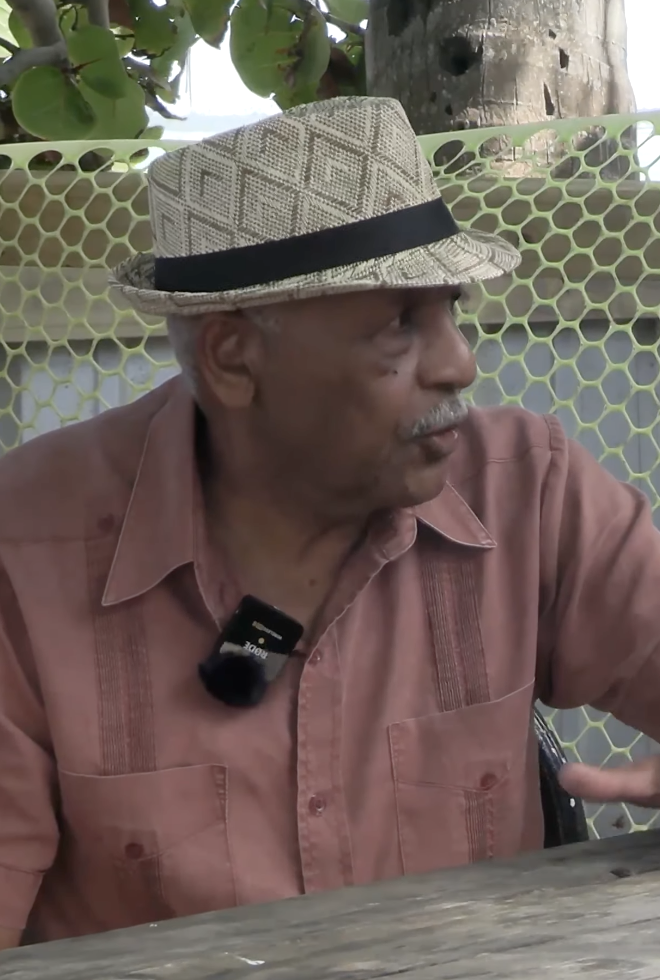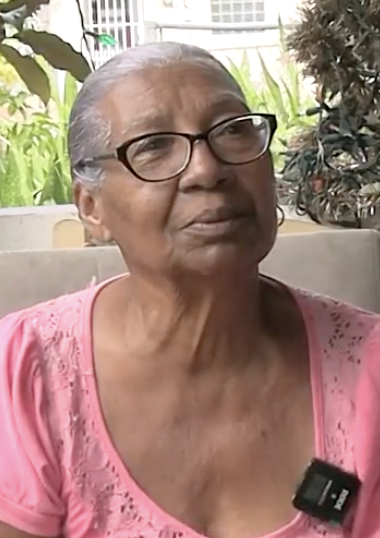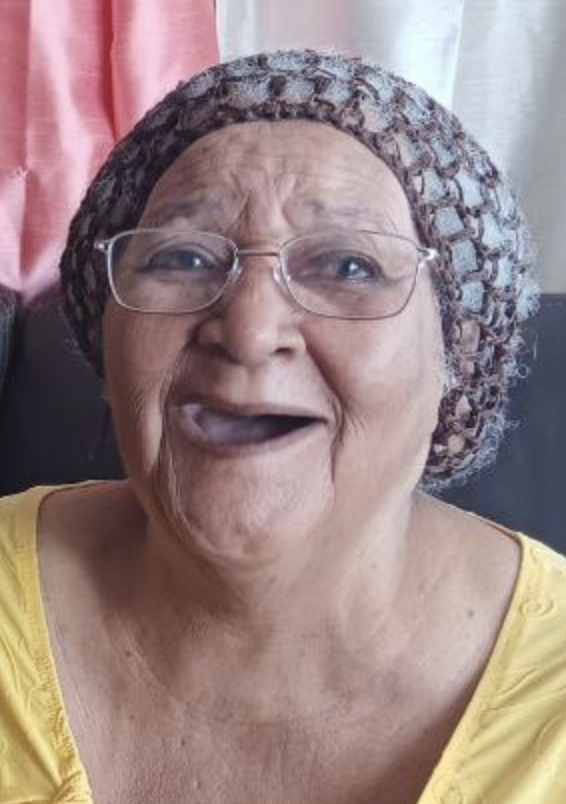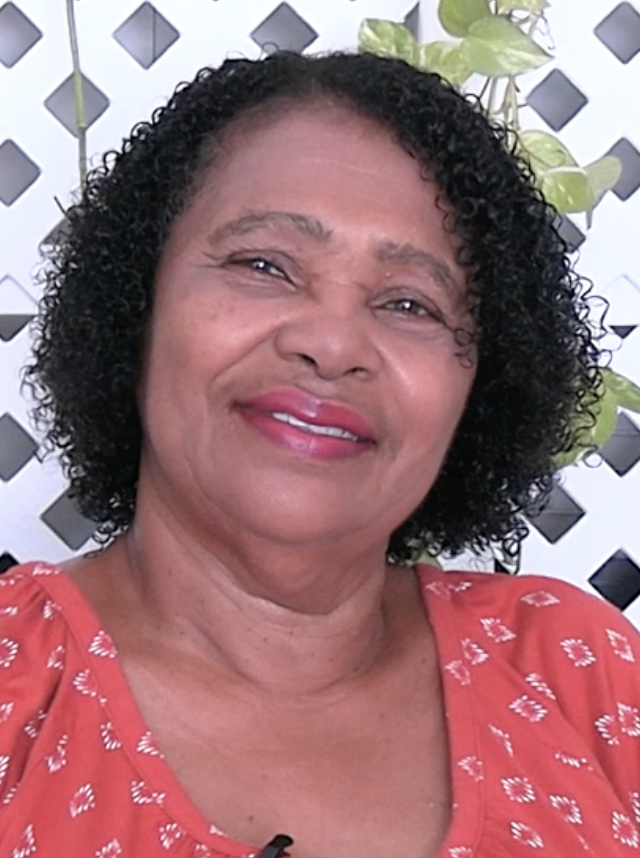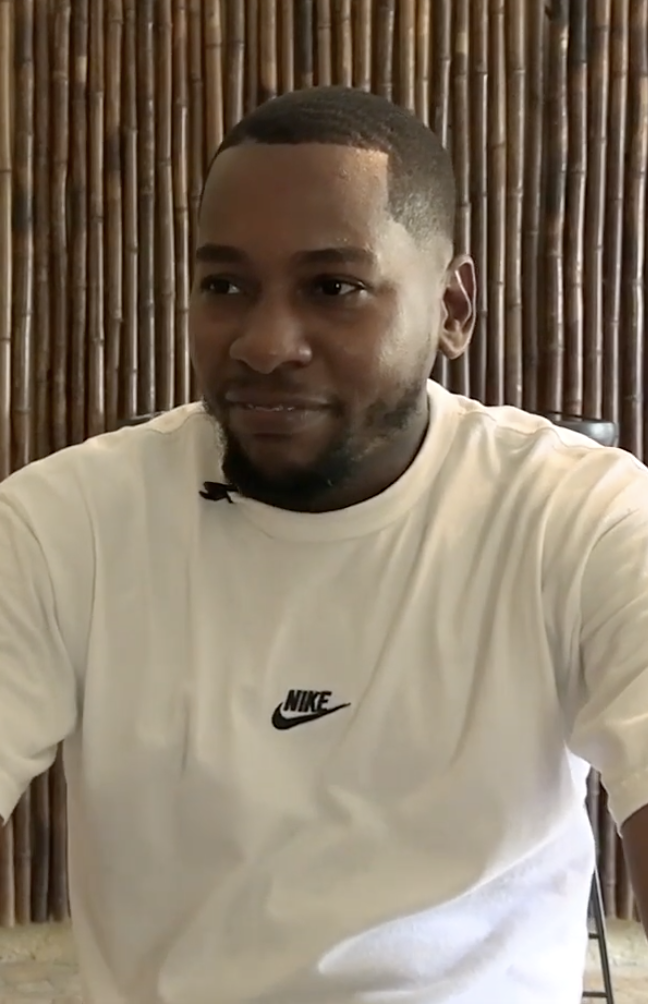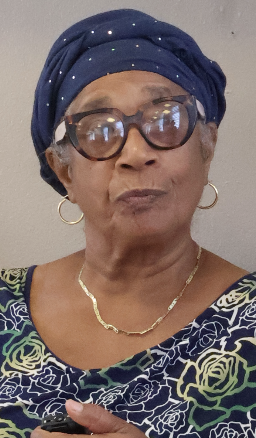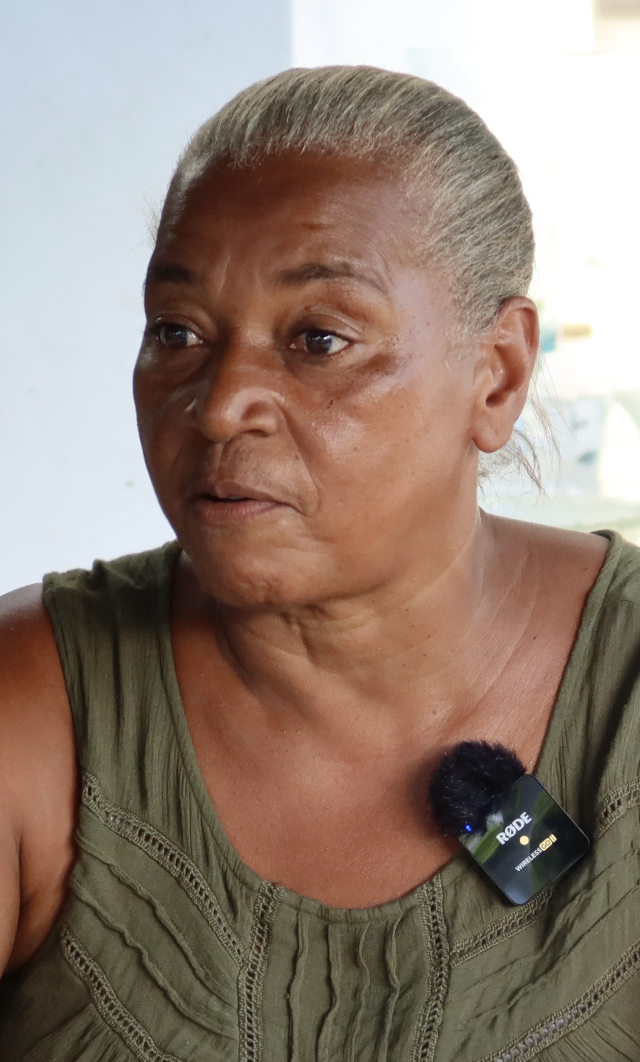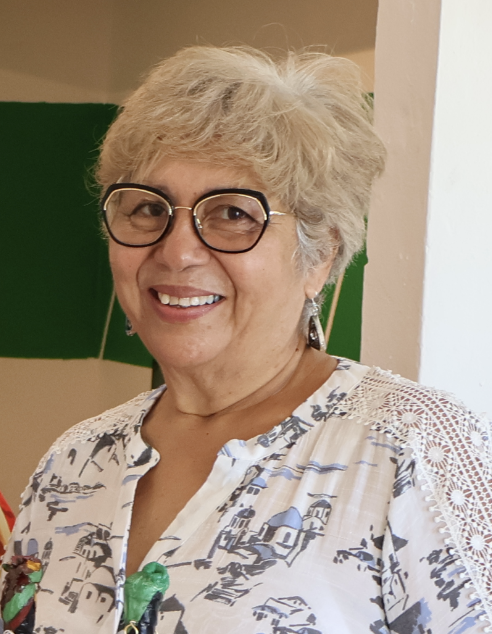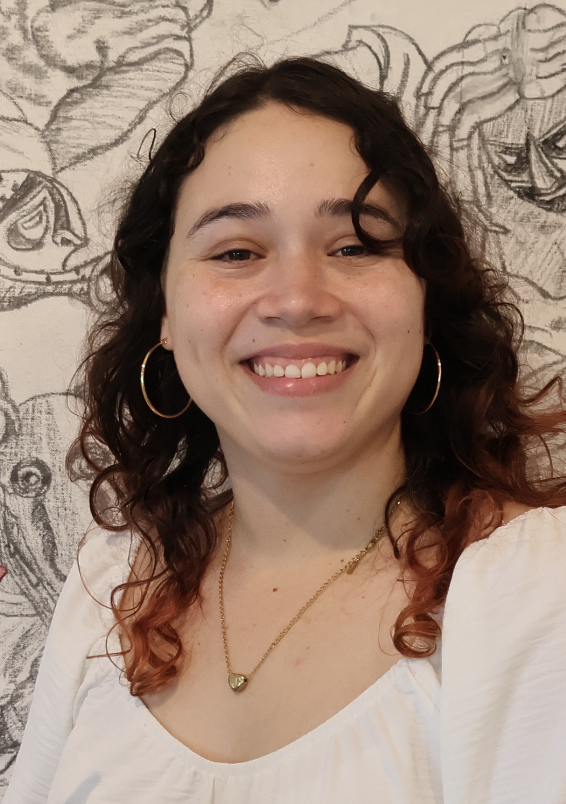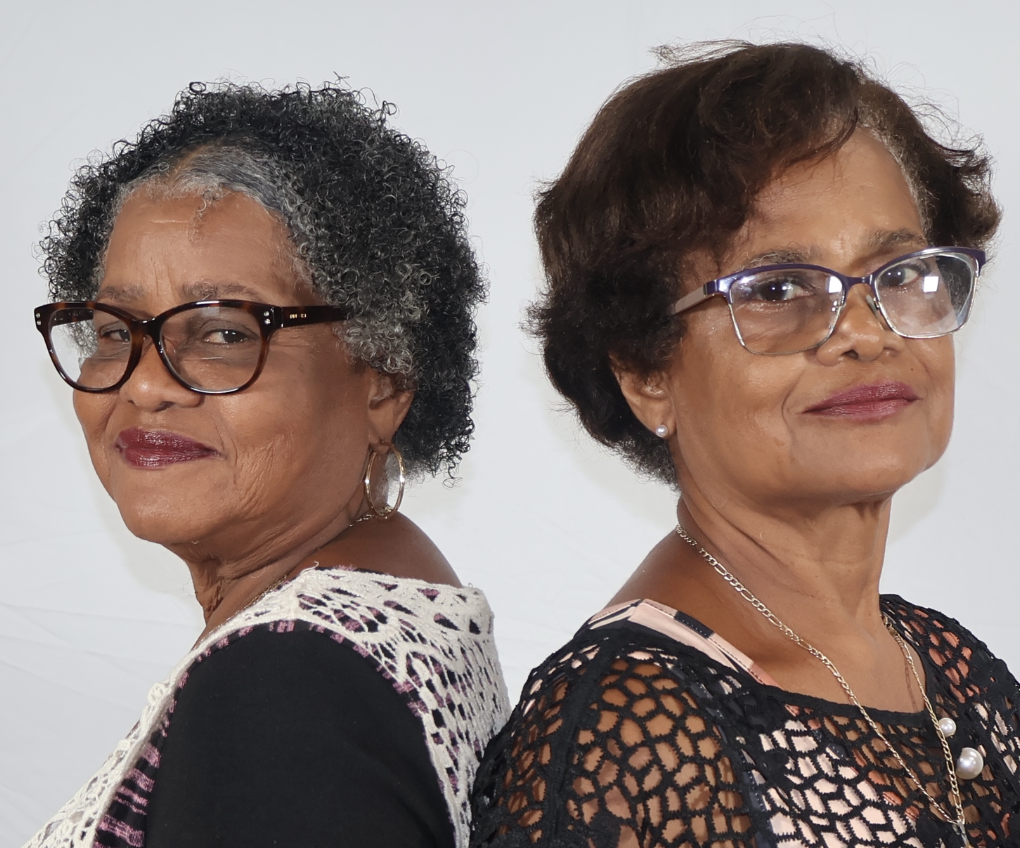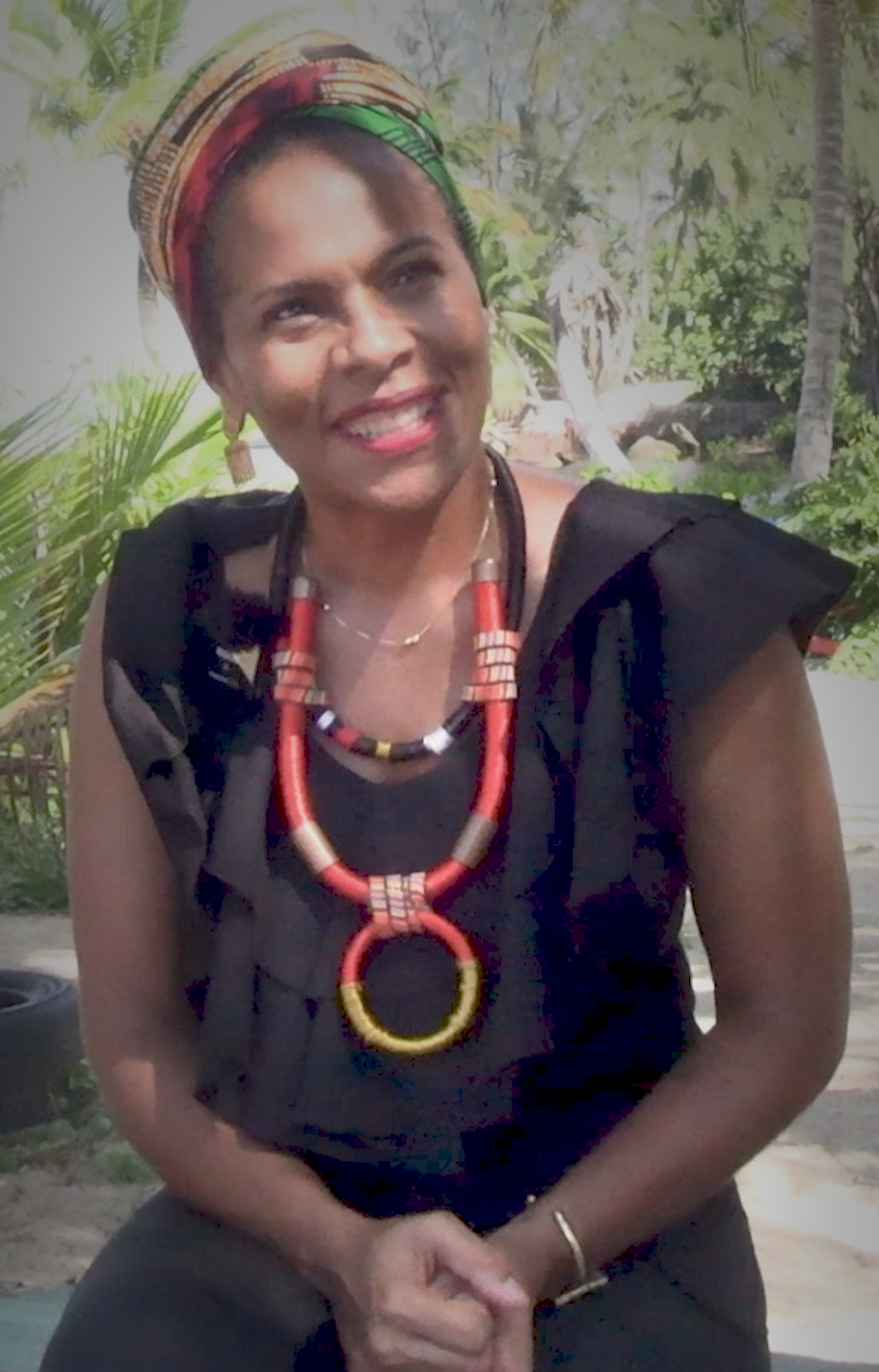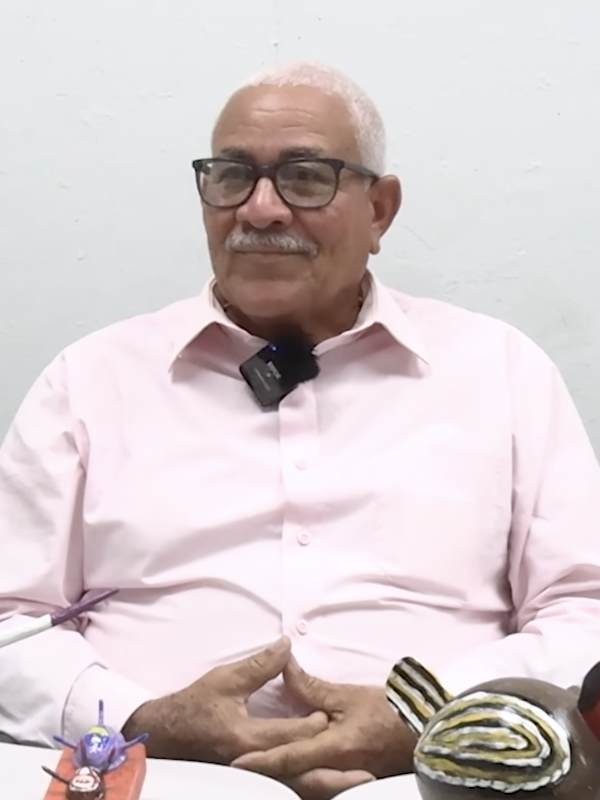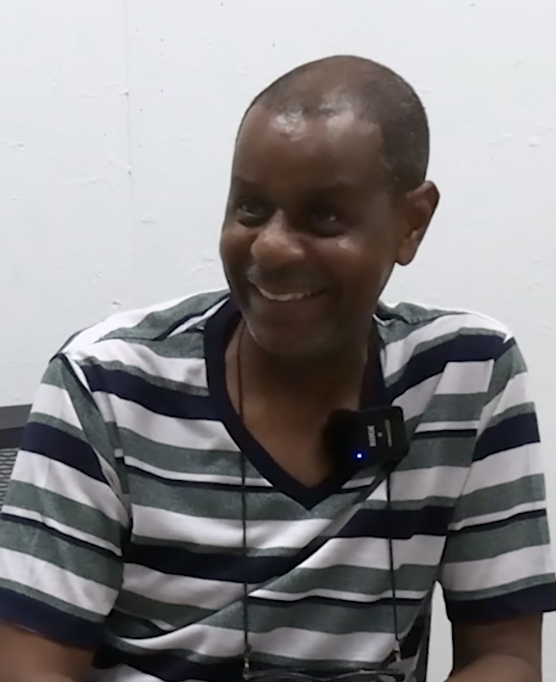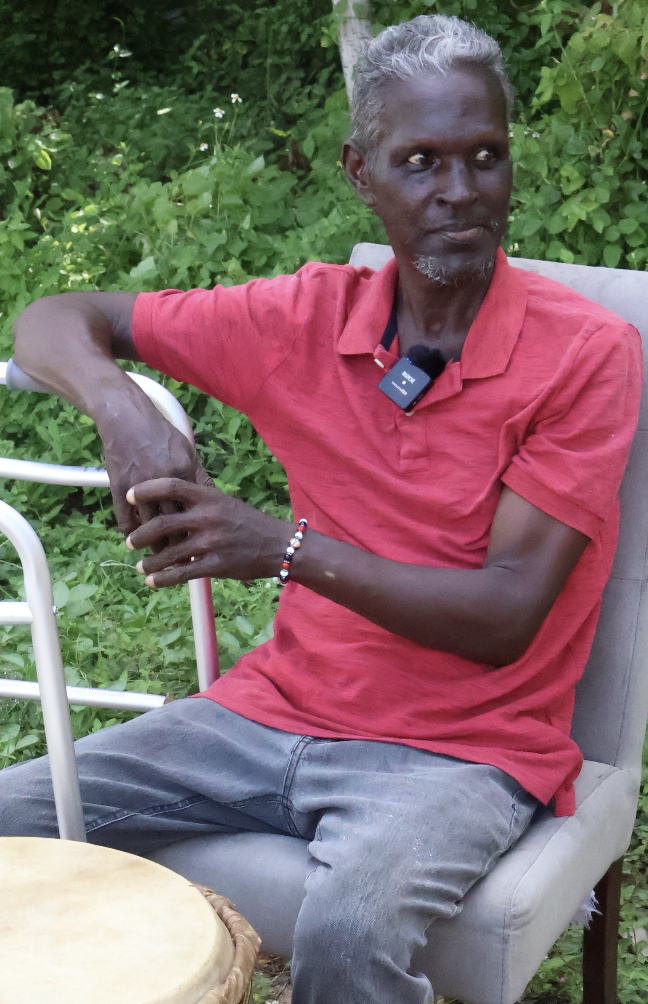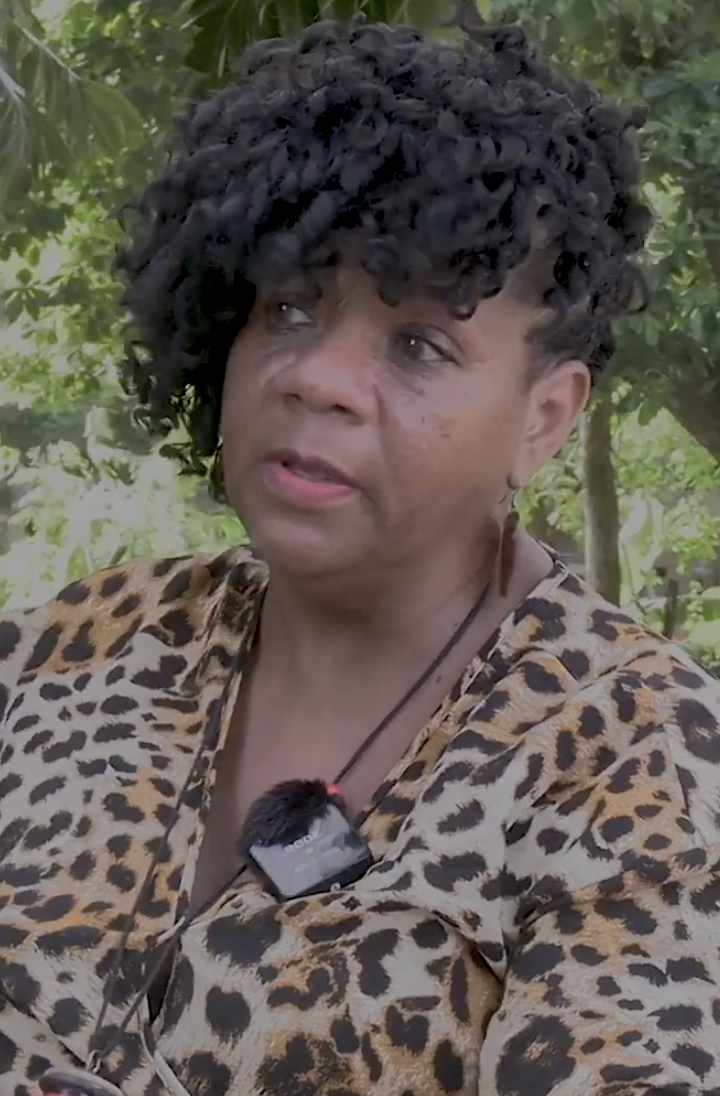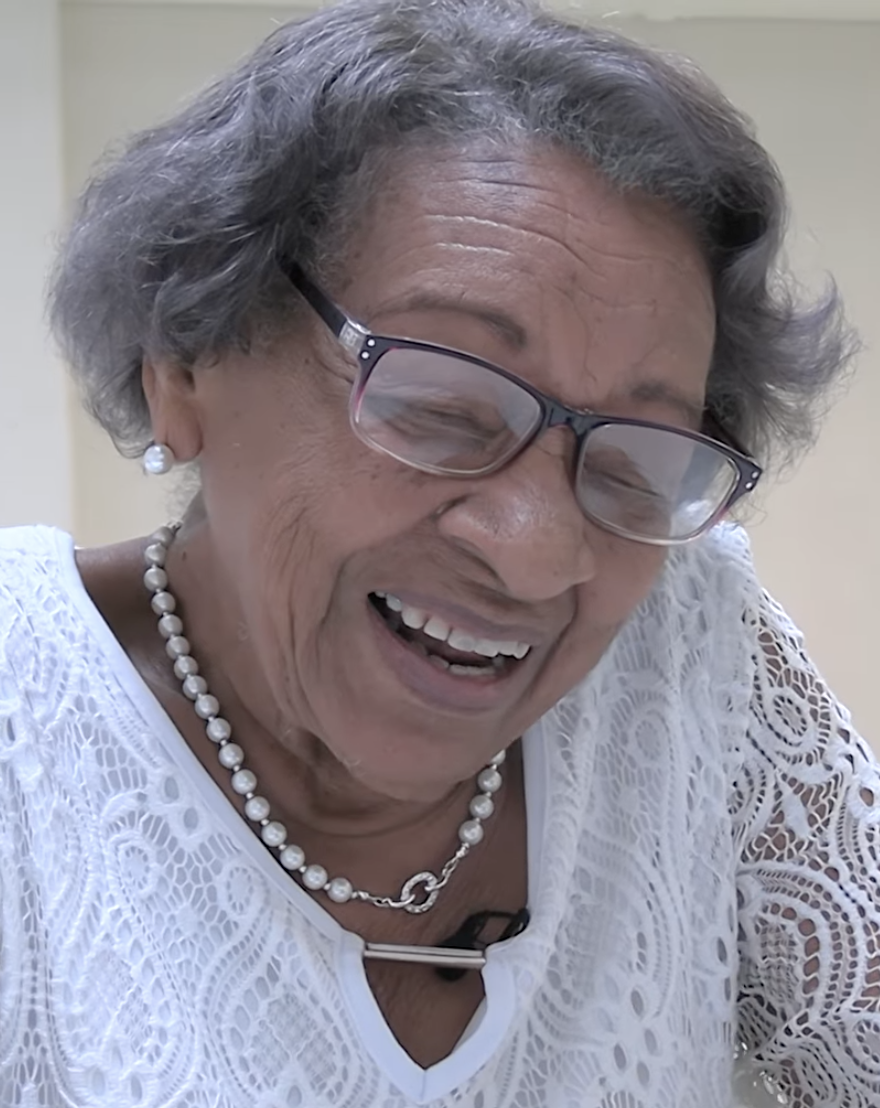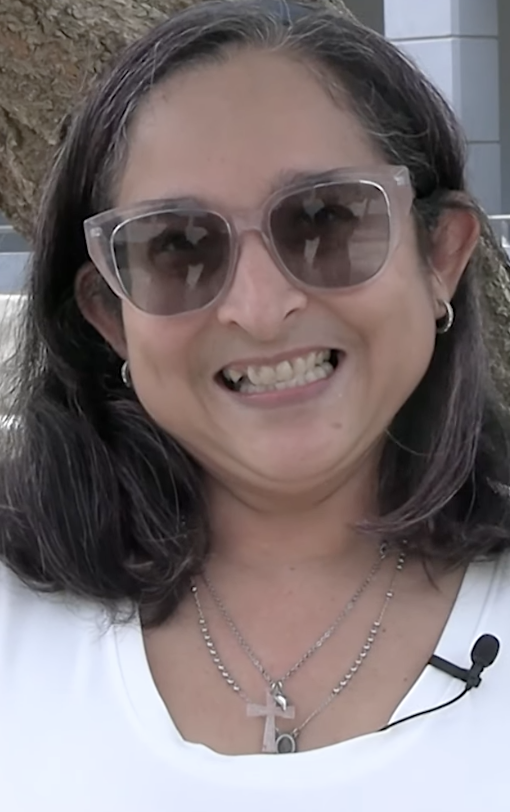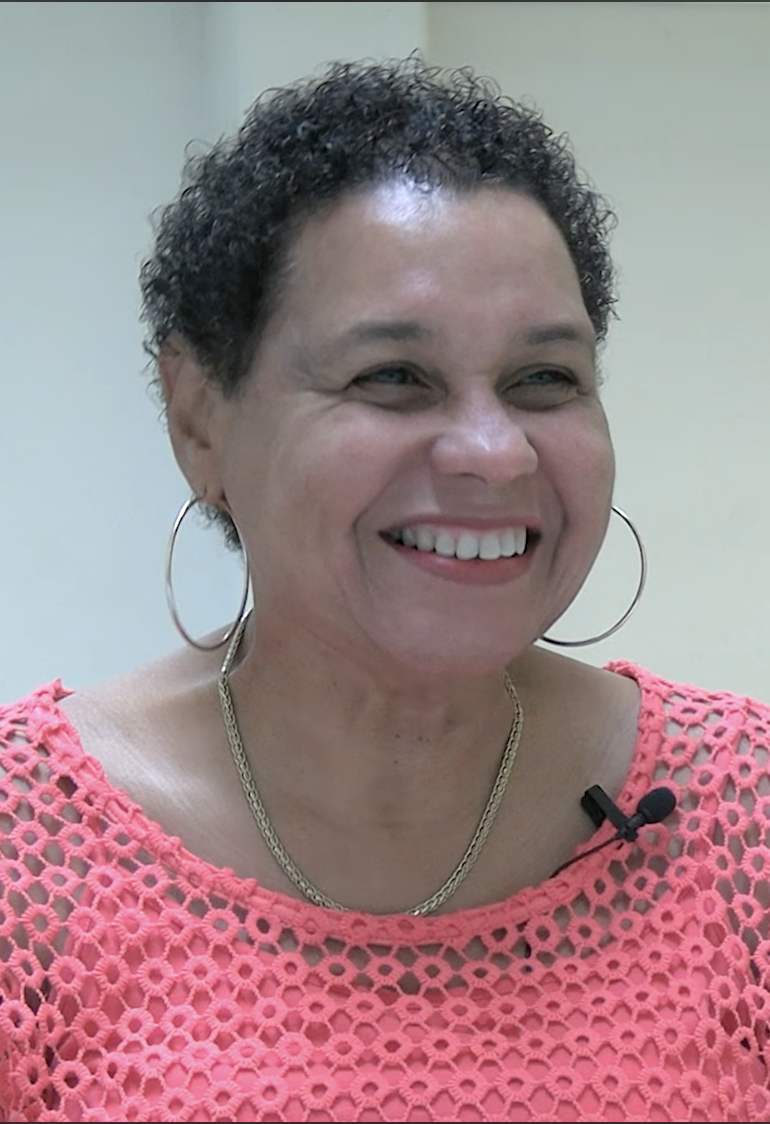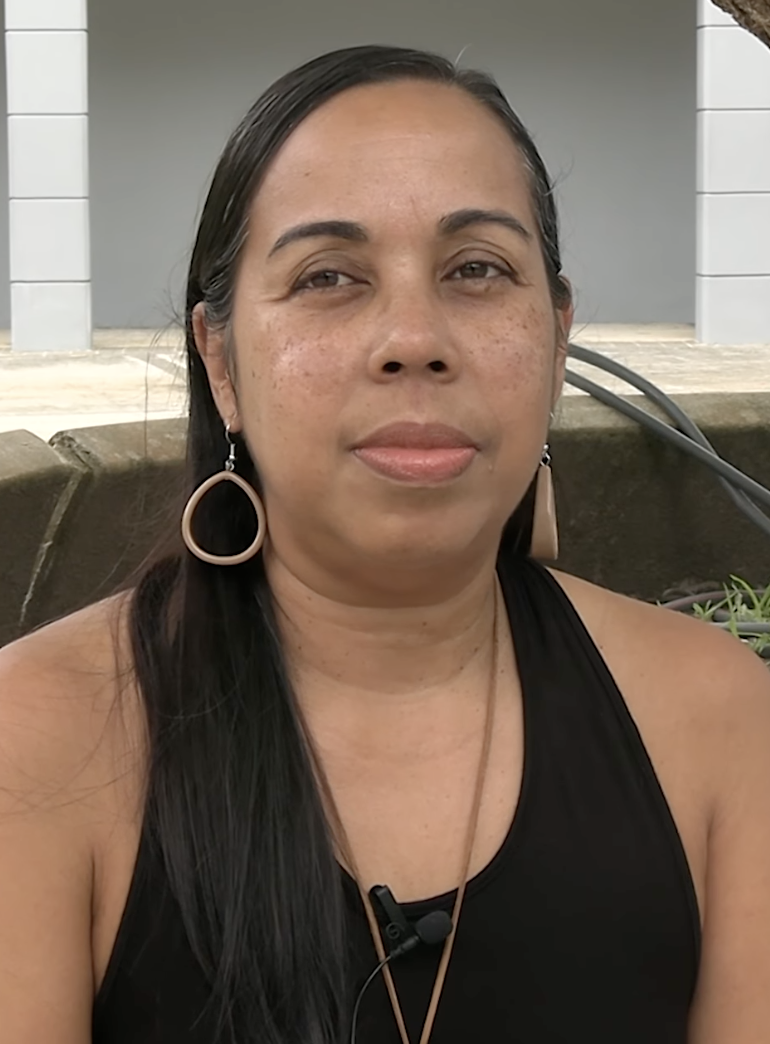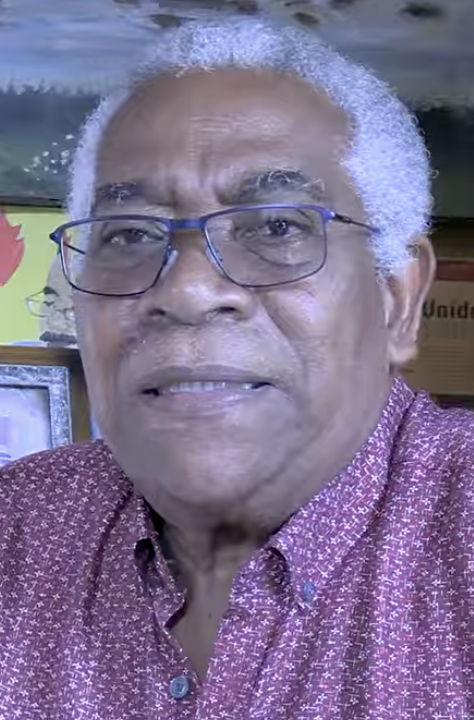Items
-
Orlando Tomasini: Rescatando la Inteligencia Ancestral Afro
Esta entrevista fue realizada en el Corredor Afro, que es un proyecto internacional de innovación creativa, sociocultural, educativo y artístico enfocado en resaltar, conservar y visibilizar el acervo cultural y la inteligencia ancestral de los afrodescendientes que viven en Puerto Rico, el Caribe y el mundo; ubicado en el sector Piñones, del barrio Torrecilla Baja en Loíza. El entrevistado, en este caso el Sr. Orlando Tomasini Correa, el propósito fue adentrarnos en los temas que tratamos con él, como la confección de máscaras que actualmente, en 2025, continúa realizando y nos mostró máscaras nuevas que está realizando. El Sr. Tomasini representó a Puerto Rico en Colombia y obtuvo un premio por su obra en el campo de la artesanía. En términos de la pesca en el área de Parcelas Vieques de Loíza, participó en su juventud; hace poco abandonó la cría de gallos que realizó por mucho tiempo. -
Calila Figueroa: Conciencia Ambiental desde Colobó
Esta entrevista fue realizada en el sector Colobó del barrio Medianía Alta, en el municipio de Loíza. La aportadora Calila D. Figueroa Heureaux, mi impresión, es una persona muy capacitada y con gran conciencia ambiental. Su trabajo consiste mayormente en la parte educativa que incluye temas ambientales en el Centro Esperanza en Loíza. Nos contó su experiencia durante las inundaciones en el sector El Martillo. Recuerda muy bien los huracanes Irma y María y la destrucción causada. -
Voces de COPI: El Clamor por la Bioluminiscencia Perdida
La entrevista realizada a la Sra. Escalera en las facilidades de la corporación sin fines de lucro COPI (Corporación Piñones Se Integra), en Boca de Cangrejos, barrio Torrecilla Baja, en Piñones, estuvo relacionada con sus experiencias personales desde su infancia hasta la adultez en el área de Piñones. El barrio Torrecilla Baja, donde se ubica Piñones, es una zona de manglares rica en recursos naturales; las experiencias de vida de sus habitantes gravitan en torno a tales recursos, como la pesca, los cocos, las famosas arepas, alcapurrias y demás. La Sra. Escalera nos expresó preocupación sobre el impacto que está teniendo la cantidad de basura generada por los turistas, la regeneración del manglar, el estado actual de la laguna Piñones y la actividad de bioluminiscencia, además de otros temas de importancia. -
Ecos del Pasado: Asentamientos, Hugo y la Victoria de 1797
Esta entrevista fue realizada en el sector Finca Piñones del barrio Torrecilla Baja, en Piñones. El Sr. Carrasco comenzó a hablarnos sobre un tema crucial en Piñones: las inundaciones. Nos relató estos grandes eventos naturales que él recuerda (1962-63), cuando recogía jueyes desde su propia casa, que estaba sobre pilotes. Continuó diciéndonos de las luchas por décadas de los habitantes por la tenencia de la tierra, la amenaza de desalojo por parte de desarrolladores y los cambios que ha sufrido el manglar, principalmente a causa del huracán Hugo. En la parte histórica, ahondó sobre los asentamientos aborígenes y cimarrones en todo Piñones, también sobre el ataque británico de 1797, en el cual, luego de dos semanas, los antiguos moradores (cimarrones, negros libres, criollos) derrotaron al invasor. -
Voces del Manglar: Cuando los Canales se Cierran, Lenny Escalera
Esta entrevista fue realizada en la corporación sin fines de lucro COPI (Corporación Piñones Se Integra), en Boca de Cangrejos, en el barrio Torrecilla Baja de Piñones. La persona entrevistada comenzó a relatar cómo se vivía en el manglar y cómo los habitantes utilizaban los recursos, como hacer carbón. Luego de la creación del DRNA (agencia de gobierno), comenta el entrevistado, los canales de navegación comenzaron a cerrarse por la falta de tala selectiva del manglar. Continúa relatando cómo ha cambiado su entorno, el ecosistema del manglar, con exceso de lluvias, aumento en las temperaturas y mayor cantidad de basura. Esta y otras razones lo motivaron a participar en el Proyecto de Mitigación de Inundaciones y Limpieza de Canales de COPI (Corporación Piñones Se Integra). -
Memorias del pescador: Una vida en el mar y el clamor por la recuperación ambiental de Loíza.
Esta entrevista fue realizada en el sector Parcelas Vieques del barrio Medianía Alta, en el municipio de Loíza. El entrevistado comenzó a relatar su niñez, relacionada en gran parte a las artes de pesca aprendidas de su padre. Continuó relatando sus experiencias en el mar y las distintas artes de pesca. Relató los cambios ambientales en el área del río Herrera, la disminución de la cantidad y el número de especies, y recomienda canalizar el río para recuperar su buen estado como era en su infancia. -
La morcilla de Virginia: Secretos, ingredientes y la receta familiar que trasciende generaciones.
Este archivo documenta la experiencia y métodos tradicionales de Virginia Rivera de Jesús en la elaboración de morcillas, una práctica que inició a los 12 años como parte de una tradición familiar. La información destaca los ingredientes, técnicas y contexto cultural que rodean esta preparación, reflejando su conexión con las costumbres y festividades locales, así como su importancia en la preservación del legado gastronómico de su región. La preparación de las morcillas: base de arroz, o galletas o pan (sin ajo ni cebolla); se ligan con sangre o entrecejo. La morcilla es un embutido tradicional elaborado con sangre de cerdo combinada con ingredientes como arroz, pan o galletas, además de especias que potencian su sabor. Esta mezcla se introduce en tripas limpias y se somete a un proceso de cocción, generalmente hervida, que garantiza su conservación y realza su textura y aroma. Una vez preparada, la morcilla se convierte en un manjar versátil que puede disfrutarse frío o caliente, dependiendo de las preferencias culinarias y del consumidor. Su rica combinación de ingredientes la hace ideal para acompañar diversos platos, deleitando el paladar con su sabor intenso y característico. -
"El Burén de Lula": De la cocina del Jobo a las páginas de un libro, la historia de una leyenda culinaria.
María Dolores de Jesús de Jesús, mejor conocida como «Lula», nació en el barrio Medianía Baja, sector El Jobo de Loíza, en manos de partera. Hija de Ramón de Jesús («Tumbador de Coco») y Marcia de Jesús. Se casó con José Casanova, procreando ocho hijos de los cuales sobreviven tres. Observando a su mamá aprendió su arte culinario, que consiste en arroz con habichuelas, casabe, tortilla, empanada, rucio, arroz con jueyes, arroz con dulce, caldo santo (comida típica de Loíza). Su arte la llevó a crear su negocio, "El Burén de Lula", y escribió un libro con el mismo título. -
Tía Paula y Lula: Las mentoras que forjaron la maestría culinaria de Melva Aguayo en Loíza.
Melva Aguayo nació en el barrio Las Cuevas, en Loíza, hija de Juana Rafaela Pizarro Manzo y Carlos Dima Aguayo Romero. Son cinco hermanos maternos; ella es la mayor. En términos generales, son veinticinco hermanos. Estudió secretariado. Trabajó treinta años en el Departamento de Comercio. Empezó su arte culinario en el negocio de su papá, haciendo comida de pescado, entre otros platos. Con su tía, llamada tía Paula, aprendió a hacer comida en el burén: comida de yuca y coco, guayados en guayo y exprimidos en un paño de blanquín para procesarlos y trabajar el producto final (empanadas, tortillas, ruciao y otros). Culminó su aprendizaje con María Dolores, conocida como Lula. Trabajó también dulces tradicionales como dulce de coco, de guayaba, cazuela y otros. En la comida cocida al burén, su preferencia era la tortilla dulce. -
Mentores de vida: El profundo impacto de Silvia Fuentes y Nicolás en la carrera culinaria de Benjamín Osorio.
Benjamín Osorio Maisonet. Hombre emprendedor en arte culinario de Loíza; fue su madre, Wanda Matos Maisonet, quien le inculcó este arte. Benjamín es el n.º 6 de 9 hijos. Wanda parte para EE. UU. para tener una mejor vida, pero Benjamín se quedó por su propia voluntad con su abuela, de quien aprendió muchos refranes. En su hogar se cocinaba en anafre. Actualmente Benjamín tiene un negocio llamado "El Anafre", el cual fue el sustento de su hogar y el de su abuela hasta que él formó su propia familia. Crio a un hijo que tuvo en el intento de procrear familia. En 2013 estudió una carrera en artes culinarias. Aprendió mucho de doña Silvia Fuentes y su esposo Nicolás. Benjamín los llama sus mentores con mucha humildad. Actualmente, en 2024, se dedica a su negocio con su familia. -
Alcapurrias, caldo santo y remedios caseros: El multifacético mundo de Monserrate Fuentes Calcaño.
Monserrate Fuentes Calcaño, loiceña y residente en el sector Jobo de Loíza. Su madre, mejor conocida por «Nana», fue cocinera en el restaurante "El Parrilla". Es de ella de quien Monse hereda parte de su arte culinaria. Su diversión favorita eran las muñecas hechas de matojos. También, ella y sus amiguitos crearon un minicirco donde ella era uno de los personajes. Estudió en la Escuela Belén Blanco en Loíza, luego en la Ramón Power en Santurce, donde terminó su cuarto año. En la Central High de Santurce tomó un curso secretarial. Trabajó en un "Head Start" como maestra y más tarde se desarrolló en el arte culinario tradicional de Loíza. Ella indica que aprendió este arte mirando a otras personas. Confecciona: pasteles, comida criolla, alcapurrias, arepas o yanicletas, salmorejo, caldo santo, aceite de coco y otros. Monse es famosa por sus remedios caseros. También se desarrolló en dulces tales como: dulce de coco, dulce de lechosa, tembleque y otros. Su arte lo desarrolla con herramientas rudimentarias en su hogar. Anterior a esto tuvo un friquitín o quiosco. Es mucho lo que podemos decir de Monserrate Fuentes Calcaño, maestra, madre, cocinera, etc. -
Sabor a Melilla: Arepas, empanadas y la sazón inquebrantable de Aracelis Pizarro.
Aracelis Pizarro Rivera nació el 31 de mayo de 1963 en el sector Melilla del barrio Medianía Alta de Loíza. Actualmente vive en Villa Santos del barrio Medianía Alta. Fue su madre quien le enseñó a cocinar la comida tradicional de Loíza: arepas, empanadas, tortillas, dulces. Las materias primas principales de estos productos eran el coco, la yuca y los jueyes. Después de trabajar en fábricas logra su éxito más significativo. Su negocio inicia en festivales, siendo el primero El Chorro en Loíza. Luego se establece en la carretera 188 en Medianía Alta por espacio de cuatro meses. Más tarde se establece en parte de su hogar, donde todavía en 2024 está vigente con mucho éxito, superando obstáculos como lluvias e inundaciones. Bajo el proyecto de comunidades se preparó y le sirve a su comunidad Villa Santos, ayudándoles en tiempos difíciles. Su legado es para su nieto. Aracelis es y será una gran mujer. -
De la hoja a la obra: El arte de Awilda y la magia del reciclaje de papel periódico en Loíza.
Esta entrevista se llevó a cabo en el Sector Piñones de Loíza, cuyo propósito era dialogar sobre cómo se puede reciclar el papel periódico y convertirlo en un arte artesanal. Fue organizada por la Sra. Gladys E. Rivera. Estuvieron presentes: Imelda Rivera, Tamara Rivera y Angélica Nieves (personal técnico). Hace 30 años que Awilda llega a vivir a Loíza. Después de trabajar en diferentes lugares, ella toma diferentes talleres artesanales y decide desarrollarse en el reciclaje de papel periódico. Crea carteras, bisutería, entre otras, pero su especialidad son las muñecas negritas y de figuras emblemáticas como: Don Quijote, Sancho Panza, médicos, abogados y otros. -
De la moda al papel maché: La reinvención creativa de Melissa Vila en Loíza.
El propósito de esta entrevista era dialogar sobre la labor de Melissa acerca del reciclaje que ella lleva a cabo con el papel maché (periódico). La entrevista se llevó a cabo en el sector Piñones del barrio Torrecilla Baja de Loíza y se realizó a base de preguntas y respuestas. La persona organizadora fue Gladys Eneida Rivera (entrevistadora) y participaron en la misma la Sra. Tamara Rivera, Angélica Nieves e Imelda Rivera (equipo técnico). Melissa E. Vila Ortiz, residente actualmente del sector Villa Santos de Loíza, después de desarrollarse como diseñadora de moda, dedicó su tiempo a explorar varias alternativas en el arte. Se ha desarrollado más en el arte del papel maché. Realiza varias piezas tales como figuras, prendas, entre otras. Espera desarrollar su arte a tiempo completo y presentarlo al público en diferentes lugares, ya que disfruta mucho lo que hace. -
Hermanas de la tradición: Célida y Virginia Cirino, guardianas del arte de la muñeca de trapo.
El 20 de septiembre de 2024, a las 2:30 p.m., se entrevistó a las hermanas Célida y Virginia Cirino Carrasquillo, ambas residentes del barrio Medianía Alta, sector Colobó de Loíza. El propósito fue dialogar sobre sus evoluciones culturales. Ambas se desarrollaron en el campo artesanal sobre la cultura de su pueblo (muñecas de trapo, representando el ámbito cultural de Loíza) y llevan su arte a lugares donde son invitadas. Esta entrevista tuvo lugar en el C.E.C.E. (Centro Educativo, Cultural y Empresarial) del sector Villa Cañona, Loíza. Se realizó a base de preguntas abiertas, duró un promedio de 29:01 minutos y estuvo presente la señora Gladys E. Rivera (entrevistadora) e Imelda Rivera (área técnica). -
La maestra de la bomba: Sheila Osorio y el arte de mantener vivo el folclore de Loíza.
Sheila I. Osorio Ferrer fue entrevistada el 17 de septiembre de 2024 a las 2:30 p.m. en el barrio Medianía Alta, sector Villa Cristiana. El propósito fue dialogar sobre sus conocimientos culturales sobre la bomba tradicional de Loíza. Su duración fue de una hora. Estuvieron presentes Gladys E. Rivera (entrevistadora) y Tamara Liz Rivera (área técnica). Sheila se inició en el campo del baile folclórico de bomba en Loíza con el grupo folclórico Los Hermanos Ayala de Loíza. Tuvo el llamado para dar clases de bomba, por lo que se desempeña como maestra de este baile tradicional en el sector Vieques, Puente Herrera, en Loíza. Sheila vive y mantiene la tradición folclórica de la bomba en Loíza. -
Los secretos del palmar: Conocimiento ancestral y la artesanía de Wilcelino Pizarro Cirino.
El 25 de agosto de 2024 se entrevistó a Wilcelino Pizarro Cirino, mejor conocido como «Celele». Es residente del barrio Medianía Alta, sector Los Ayala. El objetivo fue dialogar sobre su trayectoria cultural y folclórica. Esta entrevista se llevó a cabo en el C.E.C.E. (Centro Educativo Cultural y Empresarial) del sector Villa Cañona del barrio La Cueva de Loíza. A base de preguntas abiertas, la entrevista duró 41:07. Estuvieron presentes José Luis Vargas (coordinador del proyecto) y Ana Celi Allende (área técnica). Su material artesanal lo obtiene de los palmares de Loíza. Descendiente de africanos, aprendió conocimientos de la naturaleza para reconocer el material a usar y el momento en que lo puede obtener. Señala que aprendió de dos grandes maestros: Castor Ayala y don Ricardo Alegría. Actualmente es un gran artesano, tallador y creador de obras culturales de materia ofrecida por la naturaleza e indica la importancia del ¡Proyecto Loíza Vive!. -
Un hombre orquesta, un director de emergencias: La vida dedicada de Aquilino Pizarro.
Aquilino Pizarro Osorio fue entrevistado el 25 de agosto de 2024 a las 3:15 p.m. La entrevista tuvo lugar en el C.E.C.E. (Centro Educativo, Cultural y Empresarial) del sector Villa Cañona del barrio Las Cuevas de Loíza. El propósito fue dialogar sobre su evolución cultural en Loíza. Se realizó a base de preguntas abiertas y duró 23:48. Estuvieron presentes José Luis Vargas (coordinador), Gladys E. Rivera (entrevistadora) y Ana Celis Allende (equipo técnico). El desarrollo musical de Aquilino se basa en trompeta, bombardino, trombón de vara, tambor, cuá, baquiné, entre otros. Participó en diferentes grupos folclóricos y visitó diferentes lugares del mundo. Fue especialista médico y trabajó como director de emergencias en Loíza. -
El ritmo preferido de Loíza: Elías Díaz López y la pasión por el seis corrido.
El 16 de agosto de 2024, bajo el tema «Tradición y Folclore», se entrevistó a Elías Díaz López. A base de preguntas abiertas, nos habló de sus vivencias en el campo de la música de barriles de bomba y plena de Loíza. Esta entrevista duró aproximadamente 20 minutos. Se realizó en el barrio Medianía Baja, sector La Zapatería. Estuvieron presentes Gladys E. Rivera (coordinadora) y el equipo técnico, Tamara L. Rivera. En su niñez, disfrutaba de los juegos infantiles del momento (trompo, gallitos hechos por él mismo). Ya de joven se desarrolló en el aspecto musical de nuestra cultura, en especial la bomba. Toca todos los ritmos de la bomba: yuba, cuembé y, sobre todo, el seis corrido, el ritmo preferido de los loiceños. Empezó su vida cultural con su familia, en especial con su tío Yito, entrenándose con el grupo Los Mayombe. Actualmente, Elías ayuda a Mayra L. Pizarro en clases de bomba en Vieques (isla). Elías, actualmente, atraviesa una situación delicada de salud. -
El ritmo de "Nená": Yuba, cuembé y el alma de la bomba en Mayra L. Pizarro Osorio.
Mayra L. Pizarro Osorio, alias «Nená», como aportadora cultural, nos habla de sus conocimientos y vivencias desde el folclore y las tradiciones de Loíza. Esta entrevista se llevó a cabo en el barrio Medianía Baja, sector La Zapatería Pizarro del pueblo de Loíza, y tuvo una duración aproximada de 30 min. Mayra nos cuenta que tuvo una infancia pobre, pero feliz, y que disfrutaba de jugar trompo, canicas y gallitos (hechos de semilla de algarroba). Es una gran tocadora de bomba, bailadora y salsera, conocedora de todos los ritmos de bomba, como por ejemplo el yuba y el cuembé. Fue bailadora del grupo folclórico Mayombe, Los Hermanos Ayala, entre otros. -
La antorcha de la tradición: Cómo Elisina Calcaño ilumina el camino para las nuevas generaciones en Loíza.
Elisina Calcaño Rivera nació en el pueblo de Loíza el 3 de diciembre de 1936 en un hogar lleno de tradición y folklore. Desde temprana edad tuvo sus comienzos en las fiestas tradicionales de Loíza. Actualmente, es la mantenedora del santo de los niños, donde su devoción y fervor es continuar influyendo a las próximas generaciones a continuar su legado. -
Artes y devoción: La vida de Rosaly Sanjurjo entre el teatro, el canto y Santiago de los Niños.
Rosaly Sanjurjo Calcaño nació en Río Piedras, pero fue criada en Loíza, P.R. Su pasatiempo fue participar en las bellas artes; desde aproximadamente los cinco años de edad fue parte del coro, obras de teatro y música. Tomó clases de mecanografía, pero siempre ha estado enfocada en las artes. Es la menor de tres hermanos; sus valores le fueron inculcados desde pequeña y su afiliación al Santiago de los Niños comenzó desde niña haciendo coro en las novenas. Durante su juventud tuvo un pequeño club junto a sus amistades, ya que su devoción a Santiago fue tan grande que crearon un Santiaguito con flores y cinta. Lo paseaban por todo el Pueblo del Niño con la procesión y el saludo. Rosaly exhorta a futuras generaciones a no perder la tradición y a no temerle a Santiago, ya que para ella, él hace milagros. -
Orlinda Lacén Calcaño: Una vida forjada entre la educación loiceña y la fe inquebrantable.
Orlinda Lacén Calcaño nació en Río Piedras el 21 de enero de 1965. Se crió en Loíza, P.R. Su escuela elemental fue en Parcelas Suárez, luego pasó a la Jesusa Vizcarrondo cuando estaba ubicada en la carretera 187, barrio Colobó en Medianía Alta. Su educación superior fue en la Escuela Carlos Escobar López. Ella disfrutaba de correr bicicleta por un gran palmar en Pueblo del Niño y de celebrar el Día de la Candelaria cada 2 de febrero. Orlinda tiene un bachillerato en Administración de Empresas con concentración en Contabilidad. Actualmente trabaja en el Departamento de Salud en finanzas, área de contabilidad. A sus 10 años, aproximadamente, comenzó siendo reina infantil y todos los años, por la tradición y devoción de su familia, continuaba visitando la iglesia y las procesiones. Para ella es importante y emocionante el cantar las novenas, y así comenzó siendo parte del coro en las procesiones, participar de misas, novenas, rezos y cumplir con la iglesia, ya que considera que es parte de la tradición de su pueblo. -
Más allá de la cuna: Cuando el corazón elige la tradición loiceña como propia.
Carmen Cosme Cintrón, nacida y criada en Carolina, llega a Loíza a las fiestas tradicionales por medio de su abuela, en especial para celebrar al Santiaguito de los Niños. Posee un bachillerato de oficial administrativo y maestra. Está orgullosa de ser devota del Santiago Apóstol de los Niños, con una trayectoria de años, participando en los roles en las procesiones y el saludo a Santiago. Esta entrevista se realizó el 2 de febrero de 2024 en el sector Colobó del barrio Medianía Alta. Estuvo presente el Sr. Jan Ayala (Coordinador) bajo el tema de Tradición y Folclore. A base de preguntas abiertas, ella nos habla de sus vivencias en el disfrute de las Fiestas Tradicionales de Loíza. -
De padre a hijo: La inspiración de una herencia que se lleva en las manos.
Raúl Ayala Carrasquillo nació en el pueblo de Loíza donde desde su infancia se desenvuelve en la artesanía de máscaras. Actualmente confecciona este hermoso arte y nos relata sobre cómo su familia ha sido su mayor inspiración para seguir con el arte que lo caracteriza. Este forma parte de la gran familia Ayala, reconocida por su talento artístico en todo el mundo.
